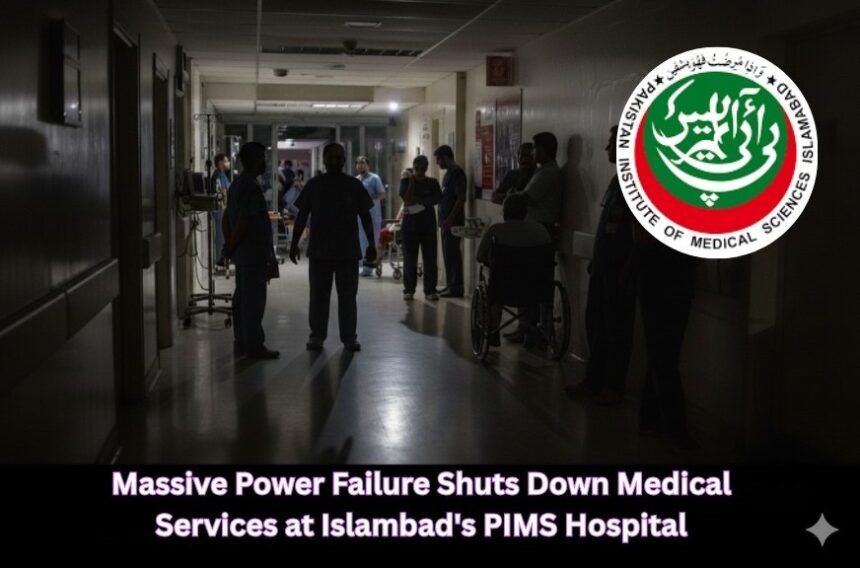A massive power breakdown at the Pakistan Institute of Medical Sciences left Islamabad’s largest public hospital struggling to function as wards, operating theatres and diagnostic units went without electricity, water and ventilation for hours. The PIMS power outage forced staff and families into a state of panic as lifesaving services were disrupted across the facility.
Hospital officials said a major fault in the external electricity supply rendered the hospital dependent on limited backup generators. Only the Emergency Department remained partly operational while radiology, intensive care and surgical departments were plunged into darkness. The absence of timely information from the electricity supplier deepened anxiety for relatives of critically ill patients.
Doctors cancelled dozens of surgeries and diagnostic procedures after CT and MRI scanners, dialysis machines and X-ray units went offline. Many patients requiring urgent imaging or dialysis were transferred to private hospitals, creating sudden financial strain for families and delays in critical care because of the PIMS power outage.
Inside the hospital, the lack of air circulation left wards uncomfortably hot and navigating dark corridors risky for attendants helping elderly or immobile patients. Healthcare workers warned that oxygen supplies and monitoring equipment were compromised at points during the outage, putting vulnerable patients at increased risk.
Senior staff spent the evening coordinating with the electricity corporation to restore supply, but admitted the hospital remained largely non-functional for most of the day. Officials acknowledged that contingency measures are weak and that PIMS remains highly dependent on an unreliable grid, a vulnerability exposed again by the latest incident.
The blackout follows repeated breakdowns in recent years that affected emergency, inpatient and OPD services and renewed criticism of slow implementation of promised reforms such as hospital solarisation. Medical professionals, civil society members and patient rights advocates have called for immediate systemic upgrades, stronger backup systems and clear accountability to prevent future disruptions to patient care.











